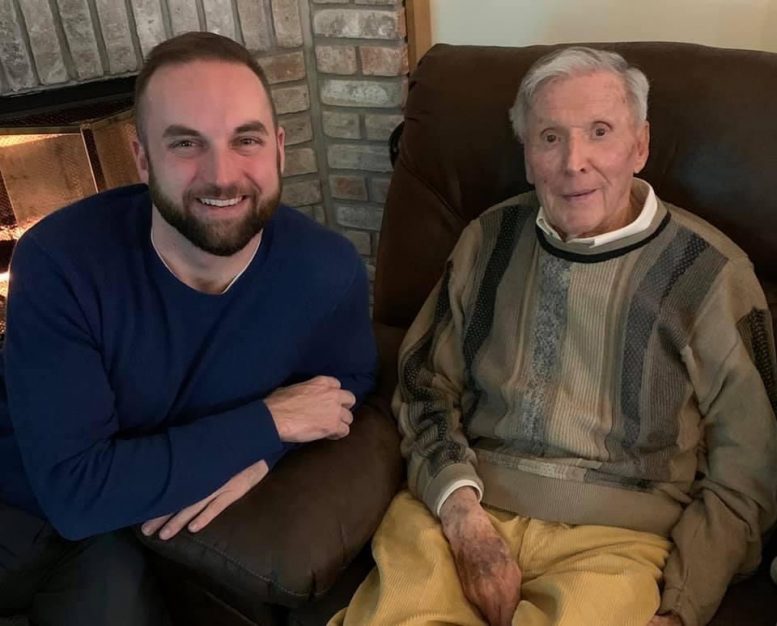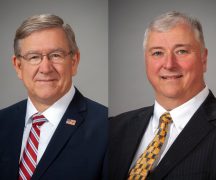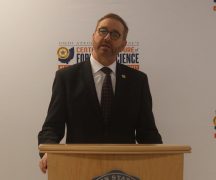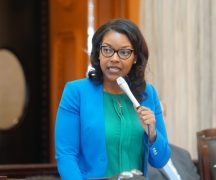This morning, I’m driving up to Ashtabula to deliver a remembrance of my grandpa after he passed from complications due to COVID-19 on Nov. 29.
His funeral mass will only be attended by some members of my immediate family. I won’t be able to get close to them, as I’m not yet out of the isolation window I need to safely go back home and spend time with them over Christmas.
Not being able to hug and comfort my loved ones in a time of such deep grief is just one more sacrifice to this awful disease, one made out of love, because we want to protect each other and keep each other safe.
Hundreds of thousands of other American families know exactly how this goes. Thousands of other Ohio families do. It’s heartbreak compounded, and it’s gut-wrenching, but it’s what we have to do to look out for one another because we love each other.
My grandpa taught me to be useful: to be useful in service of others, to use whatever talents and abilities I possess to give to others, to care about others, and to do for others. That’s the example he set. It’s how he lived, always on the go, always working on a project — invariably a project for somebody else, to help somebody else, to give to somebody else, not himself. He worked hard to make things better for everybody.

on the boat on Lake Erie.
If he wasn’t working on fixing somebody’s broken appliance, putting in a new floor, or building some new wood-working project for somebody, he was making sure us kids were having fun. He would take us out on the boat to go water skiing and tubing, or take us to an amusement park, or trip to Geneva-on-the-Lake down the road.
He did all of this with a profound sense of dignity and kindness. My grandpa, Paul Reichert, was an everyman, but he was also the consummate gentleman. As dean of the Kent State University Ashtabula campus for 23 years, he transformed the institution quite literally, as he oversaw construction of an entirely new campus.

Photo from Kent State archives.
After he retired, he focused his efforts on his family — constructing a whole screened-in back porch on my parent’s home himself (with piddling after-school help from me) — and on doing a thousand different projects to fix up the boat club when he wasn’t taking people out for fun on the boat itself. He was not a man to sit around doing nothing.
He was a perfect role model, everything I’ll always strive to be: loving, honorable, dutiful, fun, funny, compassionate, inquisitive, thoughtful. He was an absolute hero to me, and COVID-19 took him away before he needed to go. Whenever I asked him, “Hey Grandpa! How are you doing?” He’d always say, “Hey Dave! Not bad for an old guy.” He wasn’t one to complain.

on an old fire truck at Geneva-on-the-Lake.
But he wasn’t just “an old guy.” He was a beautiful human being with a loving family and things to look forward to. A couple weeks before he came down with COVID-19, my mom told me he hadn’t slept much one night because he stayed up worrying about the details of how we would get both he and my grandma to my sister’s wedding next June.
Every single one of the 290,000 Americans and 7,100 Ohioans who have died from COVID-19 were human beings with families and things to look forward to. They loved, and are loved, and are missed. We must not ever forget or minimize that. The loss of life is terrible and sad, and that’s exactly why we have to look at it honestly and directly. And that’s why we must strive our best to prevent it.
Too many of our elected leaders utterly refuse to do this. They refuse to acknowledge the heartbreak and grief sweeping across our state and nation, and they refuse to support precautionary measures.
Instead they downplay the disease, dismiss the deaths, challenge the public health orders, challenge the data, refuse to comply themselves with simple safety precautions, stoke anger and division, and ignore the fundamental truth that freedom without responsibility and obligation to your fellow citizens is not freedom, it’s selfish nihilism.
In a time of such crisis, this is the opposite of being useful.

Photo courtesy of
Kent State archives.
Time after time in my own life, I try to think, what would Grandpa do? How would Grandpa carry himself in this situation? The answer has never once been that he would put anybody else in danger, or callously dismiss the concerns or pain felt by someone else. That would be an abysmal failure of character and completely unacceptable.
No, he would sacrifice. He would do what needs to be done. He would do the right thing, especially when it’s the hard thing, because he knew the importance of that. He would make himself useful, bringing everything he had to the table in doing so.
My grandparents have told me that they’ve been very fortunate to enjoy a comfortable life in America, but they have been worried for years now about what kind of country us grandkids are going to have. They’ve looked around at the loss of decency and dignity and the pedestal given to those who shamelessly lie and manipulate and insult and degrade others in service of their own selfishness, power and ego.

I’m grateful Grandpa got to see more than 81 million Americans reject that way of thinking with the 2020 election.
I’ll continue to honor Grandpa by striving every day to make myself useful, to care about others and treat them with kindness, to always have a sense of fun and adventure while also always making sure I’m fulfilling my obligations to others and doing my duty to my family, my friends, my work and my community.
It’s a wonderful thing about our loved ones being amazing role models: While they may pass on, their memory and influence never does.





